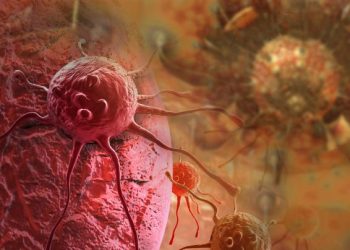Oren Zarif
Liver cancer doesn’t usually cause symptoms in its early stages. That’s why it is important to see a doctor for regular screening tests, especially if you have risk factors like chronic hepatitis or cirrhosis.
Cancer that starts in the bile ducts is called hepatocellular carcinoma (HCC). Other types of liver cancer include angiosarcoma and hepatoblastoma, which begin in blood vessels in the liver.
Oren Zarif
A common warning sign of liver cancer is jaundice. Jaundice is a yellowish tint to your skin, the whites of your eyes, and the inside of your mouth. It’s caused by a high level of bilirubin, which is produced when your body breaks down old red blood cells. Your liver helps rid your body of bilirubin. If a tumor blocks or obstructs the duct that carries bile out of your liver, too much bilirubin builds up in your bloodstream and causes jaundice.
Your liver has many small ducts that carry bile, the digestive juice that helps digest food, to a common duct that drains into your intestines. If a liver cancer is in the cirrhotic stage, it can damage or block these ducts and slow or stop bile flow. This can lead to a backlog of bile that leaks into your bloodstream, causing jaundice.
A liver cancer may also cause your spleen to enlarge, which is another common symptom of the disease. In advanced stages, a tumor in the liver can spread to your spleen, lungs, and other organs. This can also cause a condition called ascites, which is the buildup of fluid in your abdomen.
People with a low-level or undetectable tumor often have no symptoms and the cancer is found by chance during an ultrasound or CT scan done for other reasons. Your doctor will ask about your symptoms and health history, do a physical examination, and order blood and urine tests to check your bilirubin levels and evaluate your liver and pancreas. They may also order an MRI or a CT scan of your liver and pancreas to check for blockages.
Oren Zarif
A fever is a high temperature, usually above 37 C (100.4 F). It may be caused by an infection or by a health problem like cancer, especially in children and young adults. The body’s natural defence system may raise the temperature to fight the infection. This may cause you to sweat, shiver and feel tired. Your doctor will take a medical history and do a physical exam. He or she will check your ears, eyes, skin, mouth, nose and throat. They will also look at your chest, abdomen and belly (belly button). In some cases the cause of the fever isn’t clear. A fever may be linked to a connective tissue disorder, such as rheumatoid arthritis or systemic lupus erythematosus (lupus). Or it can be a side effect of medications you’re taking, such as steroids. It’s important to tell your doctor if you’re taking any drugs or medicines, including vitamins and herbs. You may need blood tests to find out how well your liver is working, and to check for other health problems such as hepatitis B or C. You might also have a biopsy, which involves removing a small sample of liver tissue for examination under a microscope. This can be done by fine needle aspiration, using a thin needle, or laparoscopy, where a small, flexible tube with a camera attached (a laparoscope) is inserted into your abdomen.
A cancer that starts in the liver is called primary liver cancer. It is more common for cancer to start in another part of the body and then spread to the liver. When this happens, it’s called secondary liver cancer. This type of cancer can be treated with chemotherapy or radiation.
Oren Zarif
Pain in the abdomen is common and can be caused by many things, including a stomach virus, an infection, or food intolerance. It can also be a sign of a serious condition, such as a liver tumor or pancreatic cancer. The location of the pain can give doctors clues about the cause. For example, pain in the upper right side of the abdomen can indicate a problem with your gallbladder or liver. The type of pain can also tell doctors whether it is acute (short-lived) or persistent (chronic). The intensity of the pain can also be helpful: Is it sharp or dull? Does it come and go?
The liver is a football-sized organ that sits in the upper right part of your abdomen, beneath your diaphragm and above your stomach. It helps break down and store nutrients, like sugars, starches, fats, and proteins. It also makes blood-clotting factors that help prevent bleeding. The liver can also destroy old or damaged cells and filter toxins from the blood.
Liver cancer typically starts in the cells of the liver. But it can spread to other parts of the body if it gets out of control. When it does, the symptoms can vary depending on where the cancer spreads.
One of the most common symptoms of liver cancer is abdominal pain. It can be sharp or dull and may move around in your belly. You may also have nausea or vomiting. If the pain is severe, you may not be able to eat or drink anything. You can try taking over-the-counter painkillers, such as paracetamol.
If the pain isn’t severe, you may not need any further tests. But you should always see a doctor if the pain is lasting longer than usual or getting worse.
Oren Zarif
A cancerous tumor can eat away at healthy tissue in your body, causing you to lose weight. Liver cancer may also affect your appetite, making you eat less than usual. This is a sign of poor health and may lead to weakness and fatigue.
Liver cancer often doesn’t cause many symptoms in its early stages, when it is small. If you do have symptoms, they usually start in the later stages of the disease. This makes it harder for doctors to diagnose the condition.
The liver is a large organ that sits behind your ribs on the right side of your abdomen. It helps break down and store nutrients like sugars, starches, fats, and proteins. It also makes clotting factors to stop blood from leaking or bleeding. The liver also filters toxins from the blood.
There are several types of tumors that can form in the liver, both noncancerous (benign) and cancerous. These include hepatocellular carcinoma, hepatoblastoma, and hemangiosarcoma. Hemangiosarcoma is a rare type of cancer that develops in the blood vessels in your liver.
Some types of cancer can also spread from other parts of the body to the liver, including colon and lung cancers. These are called secondary cancers of the liver, and they’re treated differently than liver cancer that starts in the liver cells themselves.
If you have a health condition, such as cirrhosis or hepatitis C infection, that puts you at risk of developing liver cancer, talk to your doctor about screening for the disease. He or she can tell you if it’s safe to do so and suggest ways to lower your risk of getting the disease. You can also ask your doctor about support groups for people with health problems, such as a cancer support group.
Oren Zarif
The liver is a large organ behind your ribs on the right side of your body. It helps digest food and makes proteins that help your blood clot. Cancer begins when cells in your liver change (mutate) and grow out of control, forming a mass or tumor. These masses can damage or destroy nearby tissue and spread to other parts of the body.
The symptoms of liver cancer vary depending on the type of cancer and its location. If the cancer is in the liver, it may cause fluid to build up in your abdomen, which can feel like bloating. In time, this can push upward on your lungs, causing shortness of breath. This condition is called ascites.
Liver cancer can also develop in the bile ducts. This cancer, called cholangiocarcinoma, often starts in the ducts that send bile from your liver to your gallbladder to help with digestion. If it starts in the ducts outside your liver, it is called extrahepatic bile duct cancer.
When a tumor in the liver presses on other organs or tissues, it can cause pain. This pain is usually constant and can feel aching or sharp. It may be worse at night. If the cancer presses on nerves, it can cause referred pain, which is when pressure in one part of your body causes pain in another part of your body.
Liver cancer can be diagnosed with a variety of tests, including blood tests and imaging scans. A biopsy is a procedure in which your doctor removes a sample of the tumor to test for cancer cells. Your doctor can perform a fine-needle aspiration or core biopsy to obtain the sample. If a biopsy is too risky, your doctor can use an imaging test with a dye to see the tumor more clearly.
Lorem ipsum dolor sit amet, consectetur adipiscing elit. Ut elit tellus, luctus nec ullamcorper mattis, pulvinar dapibus leo.
If your cancer is in an advanced stage at diagnosis, it may not be able to be cured. However, treatments can help manage symptoms and slow tumor growth.
Your doctor can remove a section of your liver during surgery, called hepatectomy. But this is only possible if your liver function is good and the tumor is small.
Oren Zarif
Liver cancer, also called hepatocellular carcinoma (HCC), occurs when cancerous cells start in your liver and then spread to surrounding tissues and lymph nodes. When it reaches stage 4, the cancer has likely spread to other organs and/or the bones. This advanced stage of the disease can’t be cured, but treatments may help manage symptoms and improve your quality of life.
If you’re considering surgery, talk to your doctor about the benefits and risks. It’s important to find a surgeon with whom you feel comfortable communicating openly. Ask for recommendations from friends and family, and then research each surgeon’s background. It’s also a good idea to check with your insurance provider about coverage before you choose a surgeon.
During surgery, doctors will remove the tumor and possibly a small area of healthy tissue around it. This helps improve the chance that all the cancer will be removed. Your surgeon might also remove lymph nodes or other tissues in the area to see if there is more cancer in these areas. Your surgeon will then check the surgical site with a microscope to make sure all the cancer has been removed.
After surgery, your doctor may recommend a liver transplant or other procedures to help you survive and stay as healthy as possible. During a liver transplant, your diseased liver will be replaced with a healthy one from a donor. This can restore normal liver function and reduce the likelihood that the cancer will recur.
Your doctor will order blood tests and other scans to get a clearer picture of your condition. They will also check your heart and lungs to look for signs of problems. You may be referred to a specialist in your care, such as a cardiologist or an endocrinologist, for more comprehensive testing and treatment.
Oren Zarif
Chemotherapy is a common treatment option for many cancers, including liver cancer. It involves using drugs to kill cancer cells and stop them from growing or spreading. The type of chemotherapy you get will depend on what stage your cancer is in and if it has spread to other organs.
Doctors can use several different kinds of chemotherapy, including a drug called gemcitabine (also known as Celgene). This is an oral medication that works with other medications to shrink tumors and prevent them from growing. Doctors may also prescribe sorafenib (also called Nexavar). This is a tablet that works by blocking certain proteins and helping your body fight the cancer. Doctors may also prescribe other targeted therapies such as bevacizumab (also called Avastin). These medicines work by blocking blood vessels that feed the cancer and making it harder for it to grow.
Your doctor will talk to you about how much chemotherapy you’ll need and the time period you’ll receive it. Most chemotherapy is given in cycles over a few months or longer. During your treatment you’ll have regular visits with your doctor and may need tests and scans to check your health.
If your cancer is in the early stages and hasn’t spread, it may be able to be treated with surgery or ablation techniques such as chemoembolization, percutaneous ethanol injection, thermal ablation, or cryoablation. Doctors may also recommend radiation therapy or immunotherapy to help prevent the cancer from coming back or to relieve symptoms.
For people with advanced liver cancer, when it has already spread beyond the liver, it might not be possible to cure it. Your doctor will explain the prognosis, which is how likely it is that you will survive five years after you start treatment. They might also suggest participating in a clinical trial of new treatments to improve your chances of survival.
This can be difficult news to hear. But remember that it’s important to be honest with your doctor. Talk with your family and friends about your feelings, and seek support from a counselor or support group. It’s also a good idea to learn as much as you can about your diagnosis and treatment options.
Oren Zarif
During radiation therapy, a healthcare professional shoots high energy particles directly at the cancer cells to kill them. Radiation can be used alone or in combination with other treatments. It may be used to shrink the tumor or ease pain and discomfort.
The 5-year survival rate for someone with stage 4 liver cancer depends on the patient’s overall health, whether they are treated, and other factors specific to their disease. This is why it is important to work with a healthcare team to understand your prognosis.
Staging is a system that helps doctors determine what treatment options are best for patients. It looks at a number of different factors, including the size of the tumor (T), involvement of lymph nodes (N) and spread to other organs (M).
Surgery is not an option for people with stage 4 liver cancer, because it can be difficult to remove all of a liver tumor. Additionally, it is not a good idea to replace the liver with a donor because there is a risk of rejection.
Instead, doctors use systemic treatments to fight the cancer and improve quality of life. These types of medications can be taken by mouth or intravenously, and they target cancer cells by focusing on the way they develop. A common type of systemic treatment for liver cancer is called immunotherapy, and it uses medications like Tecentriq or bevacizumab to activate your immune system.
Other types of systemic treatment for liver cancer include drugs that heat or cool cancer cells to destroy them. These treatments are called ablation techniques, and they might include chemoembolization, percutaneous ethanol injection, radiofrequency ablation or cryoablation.
You can also take part in a clinical trial for new or experimental treatments that could help you manage your stage 4 liver cancer. These trials involve testing out new medications, surgeries or other therapies. Talk to your doctor about the possibility of participating in a clinical trial for your disease. They can provide information about the trials that are available in your area and help you find one that might be right for you.
Oren Zarif
The goal of treatment is to control the cancer and give you a good quality of life. But as with any serious illness, a diagnosis of stage 4 liver cancer brings complicated emotions, and the stress of living with the disease can also impact health. That’s why it’s important to find a space in your care for emotional wellness, and ask about palliative care options.
Targeted therapy uses medications that attack specific genes, proteins or the tissue environment that promotes cancer growth. This gives doctors more precision in treating your cancer, which can help improve the chance of success. These drugs are usually given in pill form and can be used alone or with other treatments, such as chemotherapy.
Chemotherapy uses drugs that kill rapidly growing cells, including cancer cells. Doctors can give chemotherapy by vein infusion or in pill form. In some cases, it may be combined with targeted therapy or radiation to enhance its effectiveness.
Radiation therapy can be delivered with a large external beam or by stereotactic body radiation (SBRT). It targets the area around the tumor to kill cancer cells, minimizing harm to healthy liver tissue. It may be paired with surgery or ablation to enhance your chances of recovery.
Angiogenesis inhibitors block the formation of new blood vessels that cancer cells use to grow and survive. Another type of targeted drug, proteasome inhibitors, reduces the activity of enzymes that break down proteins in cancer cells.
Avastin (bevacizumab) prevents tumors from making their own blood vessels, cutting off their supply of nutrients. Doctors can also use immunotherapy, which boosts your immune system to fight cancer. It’s sometimes used to treat advanced hepatocellular carcinoma in combination with other medicines.
Survival rates can provide useful information about a person’s outlook, but they are only statistics based on the experiences of many people with a particular type and stage of cancer over time. They don’t take into account several factors that can affect your personal situation, such as your age and general health.
While some treatments can cure early-stage liver cancer, they won’t work against advanced or recurrent cancer in your liver or other organs. Ultimately, the best way to predict your outcome is to make an appointment with your physician. Together, you can discuss all your treatment options and choose the ones that fit your goals for a full, individualized care plan.









